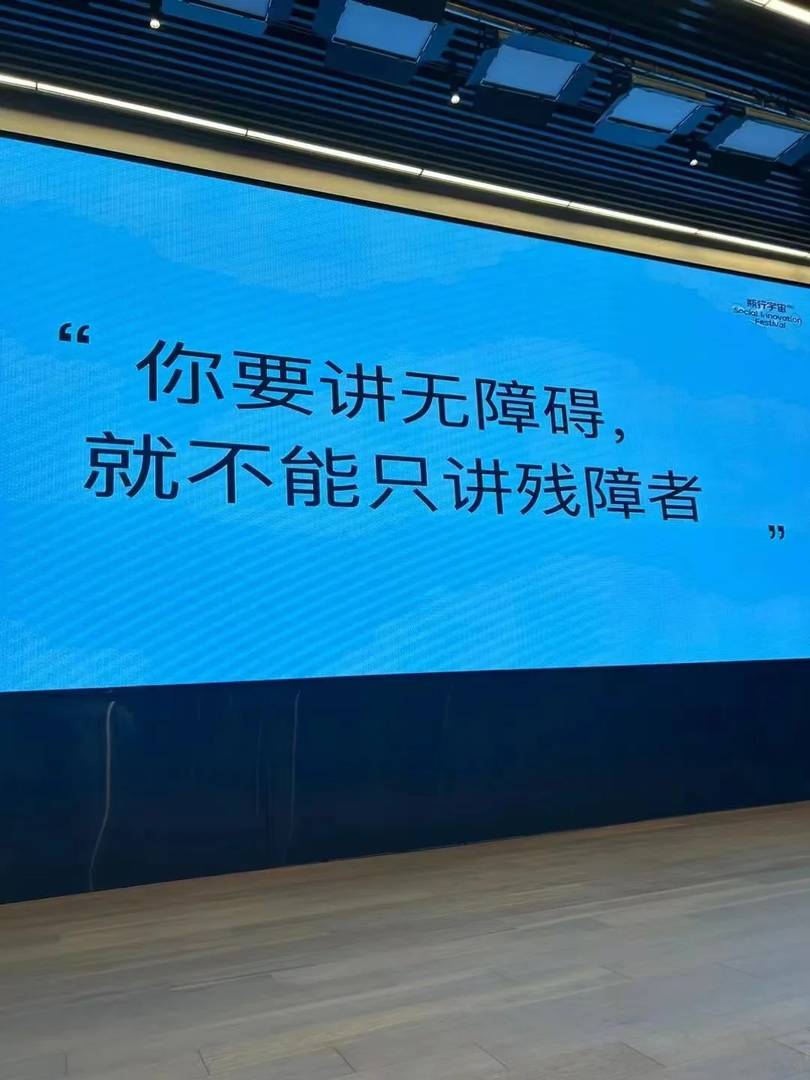Is There a Distinction Between “Disabled Individuals” and “People with Disabilities”?
For Zhi Xiang Shuo, the Difference Matters.

We all experience situational and temporary disabilities in daily life. Imagine covering an injured eye, wrestling with heavy luggage in a subway without elevators, or even navigating life after losing loved ones. Without warning, anyone could join the ranks of those facing social isolation or inconvenience due to circumstances beyond their control.
People with disabilities and those experiencing “social inconveniences” exist in a unique space—they are, yet aren’t, a minority group. The truth is, there’s no fundamental divide between “them” and “us.” Every human being represents a spectrum of possibilities.
As members of the so-called “majority,” showing empathy toward the “minority” means more than just understanding their struggles—it’s about recognizing our shared humanity across life’s unpredictable journey.
When fate’s wheel turns, there are no permanent winners—only those currently enjoying good fortune.
This profound truth drives Zhi Xiang Shuo’s mission to create accessible product packaging.
By incorporating universal design principles from the start, we can develop more inclusive products—and gradually reduce the number of people who feel “disabled” by their environment.
At bottleDream’s “Parallel Universe” event focusing on disability inclusion, Mia, founder of accessibility initiatives, shared this insight: “True accessibility conversations must move beyond just ‘disabled individuals.'” Only when society recognizes that disability stems from random environmental and circumstantial factors—and breaks down mental barriers—can we build genuinely inclusive communities.
Many concepts in this article draw inspiration from the Douban group “From ‘Disabled Individuals’ to ‘People with Disabilities.'” We extend our deepest gratitude to this community for sparking Zhi Xiang Shuo’s accessible product innovations.
@Social Impact
I never thought about situational disabilities before, but it makes so much sense—everyone can relate to moments where we’re temporarily hindered. The shift from “disabled persons” to “persons with disabilities” feels like more than just word choice; it’s about recognizing humanity first.
I never thought about situational disabilities before, but it makes so much sense—like how losing someone close can feel paralyzing emotionally. The language shift from “disabled persons” to “persons with disabilities” feels more respectful because it puts the person first. It’s a good reminder that ability isn’t fixed for any of us. This article really opened my eyes to how we can be more considerate in our language choices.